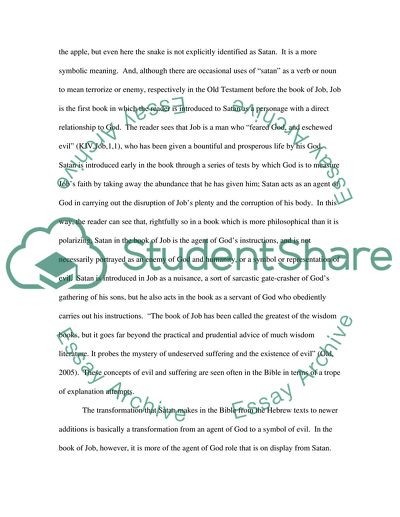Cite this document
(God and Satan in the Hebrew Bible Essay Example | Topics and Well Written Essays - 1750 words, n.d.)
God and Satan in the Hebrew Bible Essay Example | Topics and Well Written Essays - 1750 words. https://studentshare.org/religion-and-theology/1553100-the-role-of-the-deity-in-the-hebrew-bible-or-the-development-of-satan-in-the-hebrew-bible
God and Satan in the Hebrew Bible Essay Example | Topics and Well Written Essays - 1750 words. https://studentshare.org/religion-and-theology/1553100-the-role-of-the-deity-in-the-hebrew-bible-or-the-development-of-satan-in-the-hebrew-bible
(God and Satan in the Hebrew Bible Essay Example | Topics and Well Written Essays - 1750 Words)
God and Satan in the Hebrew Bible Essay Example | Topics and Well Written Essays - 1750 Words. https://studentshare.org/religion-and-theology/1553100-the-role-of-the-deity-in-the-hebrew-bible-or-the-development-of-satan-in-the-hebrew-bible.
God and Satan in the Hebrew Bible Essay Example | Topics and Well Written Essays - 1750 Words. https://studentshare.org/religion-and-theology/1553100-the-role-of-the-deity-in-the-hebrew-bible-or-the-development-of-satan-in-the-hebrew-bible.
“God and Satan in the Hebrew Bible Essay Example | Topics and Well Written Essays - 1750 Words”. https://studentshare.org/religion-and-theology/1553100-the-role-of-the-deity-in-the-hebrew-bible-or-the-development-of-satan-in-the-hebrew-bible.


